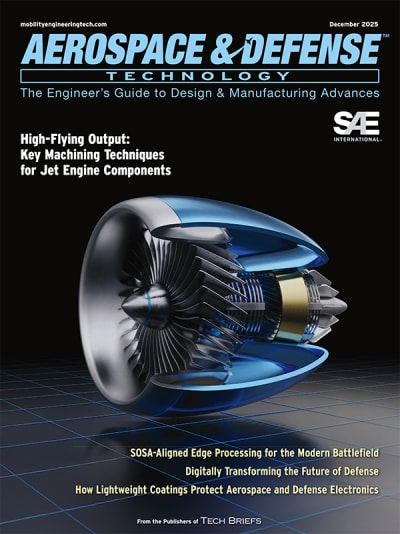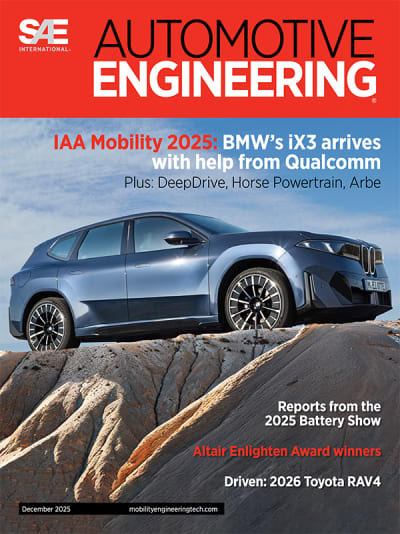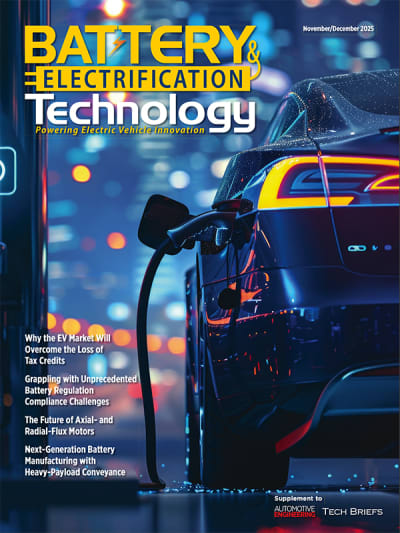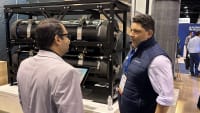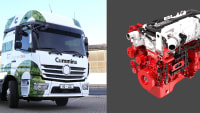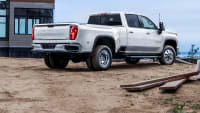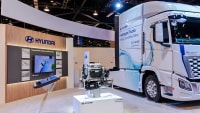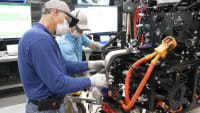Yanmar Announces Marine Hydrogen Fuel-Cell System
Yanmar’s marine-grade hydrogen fuel-cell propulsion system now is available for commercial orders.

Yanmar announced that its marine subsidiary, Yanmar Holdings, is now offering a marine-grade hydrogen fuel-cell (HFC) propulsion system. According to the company’s announcement of the system’s availability, the system is suited for use in various oceangoing vessels including passenger ships, work ships and cargo ships operating in coastal areas where hydrogen refueling is relatively accessible.

Yanmar states that due to the International Maritime Organization's (IMO) revised target of achieving zero net greenhouse gas (GHG) emissions by 2050, the marine propulsion industry is robustly pursuing all decarbonization efforts.
Yanmar reportedly aims to “provide total solutions for decarbonization and digitalization of ships with comprehensive designs covering the entire powertrain of fuel cell ships, encompassing power storage, power management, propulsion, hydrogen storage systems and more.”
Order up

As of August 1st, 2023, the H2 fuel-cell systems reportedly were available for commercial orders. Lead times were not provided in the company’s announcement, but Yanmar did note that each system is made-to-order. The system has a rated output of 300 kW, but also is customizable to individual needs. The stated output voltage is 650V DC with a setting range of 450-700V DC. The complete system weighs approximately 3,000 kg (6614 lb.).
Yanmar claims that the system is 100% zero-emissions (CO2, NOx, SOx or PM) and features low NVH, no exhaust-gas odor and provides smooth operation for a more comfortable ride. A gas valve unit is built into the housing to simplify installation and the system is equipped with a maritime HFC module that has received an Approval in Principle (AiP) from ClassNK.
Trial by sea
In 2015, Yanmar was “commissioned by the Ministry of Land, Infrastructure, Transport and Tourism to formulate the outline of the ‘Safety Guidelines for Hydrogen Fuel Cell Ships’ in collaboration with the National Maritime Research Institute.”
Over the next three years, Yanmar developed a marine HFC system using select components from Toyota Motor Corporation's MIRAI fuel-cell vehicle. Yanmar then performed verification trials with a test boat equipped with its fuel cells and high-pressure hydrogen storage tanks. The test boat also featured a Yanmar-developed power-management system that coordinated and controlled the operation of the fuel cell, as well as a lithium-ion battery pack and electric motors.

Yanmar’s engineers reportedly were able to verify the operation of the HFC system and the control of the electric powertrain during sea trials. The team also collected data under various sea conditions to improve system performance. Yanmar reportedly also used this test to verify shore-to-ship high-pressure hydrogen refueling technology in collaboration with Toyota Tsusho and Iwatani Corp. The firms implemented 70-MPa high-pressure hydrogen refueling using a mobile hydrogen station.
Top Stories
INSIDERRF & Microwave Electronics
![]() FAA to Replace Aging Network of Ground-Based Radars
FAA to Replace Aging Network of Ground-Based Radars
PodcastsDefense
![]() A New Additive Manufacturing Accelerator for the U.S. Navy in Guam
A New Additive Manufacturing Accelerator for the U.S. Navy in Guam
NewsSoftware
![]() Rewriting the Engineer’s Playbook: What OEMs Must Do to Spin the AI Flywheel
Rewriting the Engineer’s Playbook: What OEMs Must Do to Spin the AI Flywheel
Road ReadyPower
![]() 2026 Toyota RAV4 Review: All Hybrid, All the Time
2026 Toyota RAV4 Review: All Hybrid, All the Time
INSIDERDefense
![]() F-22 Pilot Controls Drone With Tablet
F-22 Pilot Controls Drone With Tablet
INSIDERRF & Microwave Electronics
![]() L3Harris Starts Low Rate Production Of New F-16 Viper Shield
L3Harris Starts Low Rate Production Of New F-16 Viper Shield
Webcasts
Energy
![]() Hydrogen Engines Are Heating Up for Heavy Duty
Hydrogen Engines Are Heating Up for Heavy Duty
Energy
![]() SAE Automotive Podcast: Solid-State Batteries
SAE Automotive Podcast: Solid-State Batteries
Power
![]() SAE Automotive Engineering Podcast: Additive Manufacturing
SAE Automotive Engineering Podcast: Additive Manufacturing
Aerospace
![]() A New Approach to Manufacturing Machine Connectivity for the Air Force
A New Approach to Manufacturing Machine Connectivity for the Air Force
Software
![]() Optimizing Production Processes with the Virtual Twin
Optimizing Production Processes with the Virtual Twin

